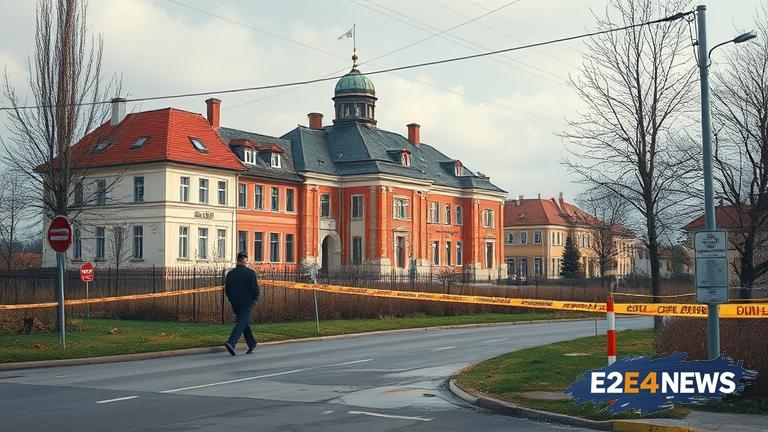A tragic event has unfolded in Vilnius, Lithuania, where a teenage boy is suspected to have been killed by one of his peers. This incident has sent shockwaves throughout the community, highlighting the need for a comprehensive approach to addressing juvenile crime. The suspected killing has raised questions about the effectiveness of the current system in place to support and rehabilitate young offenders. Lithuania has seen a rise in juvenile crime in recent years, with many cases involving violent offenses. The government has been criticized for not doing enough to address the root causes of juvenile delinquency, such as poverty, lack of education, and family breakdown. Experts argue that a more holistic approach is needed, one that focuses on prevention, intervention, and rehabilitation. This could include increasing funding for youth programs, providing more support for families, and improving access to education and job training. The suspected killing of the teenage boy has also sparked a debate about the role of social media in juvenile crime, with some arguing that it can contribute to the glorification of violence and the normalization of aggressive behavior. Others have pointed to the need for greater community involvement, including mentorship programs and community-based initiatives. The Lithuanian government has announced plans to review its policies on juvenile crime, with a focus on prevention and rehabilitation. However, critics argue that more needs to be done to address the systemic issues that contribute to juvenile delinquency. The suspected killing of the teenage boy has also raised concerns about the safety of young people in Lithuania, with many calling for increased measures to protect vulnerable youth. The incident has sparked a national conversation about the need for a more comprehensive approach to addressing juvenile crime, one that involves government agencies, community organizations, and individuals working together to support at-risk youth. The Lithuanian police have launched an investigation into the suspected killing, and the government has promised to take a tough stance on juvenile crime. However, many argue that a more nuanced approach is needed, one that balances punishment with rehabilitation and support. The suspected killing of the teenage boy has also highlighted the need for greater awareness and education about juvenile crime, including its causes and consequences. This could include public awareness campaigns, as well as education programs in schools and communities. Furthermore, the incident has sparked a discussion about the role of mental health in juvenile crime, with some arguing that more needs to be done to support young people struggling with mental health issues. The Lithuanian government has announced plans to increase funding for mental health services, but critics argue that more needs to be done to address the systemic issues that contribute to juvenile delinquency. In conclusion, the suspected killing of the teenage boy in Vilnius has highlighted the need for a comprehensive approach to addressing juvenile crime in Lithuania. This includes increasing support and resources for at-risk youth, improving access to education and job training, and providing more funding for youth programs and community-based initiatives. The government, community organizations, and individuals must work together to address the root causes of juvenile delinquency and provide support and rehabilitation to young offenders. By taking a holistic approach, Lithuania can reduce juvenile crime and create a safer, more supportive environment for all young people.
